Flies and mosquitos will eat away at your vegetable and fruit trees, and leave you with damaged crops. Additionally, if you enjoy spending time in the garden with friends and family, or you savor the solitude of being out in nature alone during the warm summer months, flies and mosquitos can make it a very unpleasant experience. Using chemical-induced repellents can do more harm than good. Not only do they have a negative effect on the environment, but they will also destroy your crops. The good news is there are plenty of plants that will solve this problem for you. Plants such as marigold, petunias, and lavender will make your backyard look pretty at the same time as warding off irritating flies and mosquitos. Here are 15 fly and mosquito repellent plants you need to grow for summer.
1. Lemon Thyme
Squeeze the leaves on the lemon and thyme plant to release a natural chemical that will send mosquitos and flies running. However, you will need to make sure you’re not allergic to lemon thyme beforehand. You can check by rubbing a leaf on your forearm.
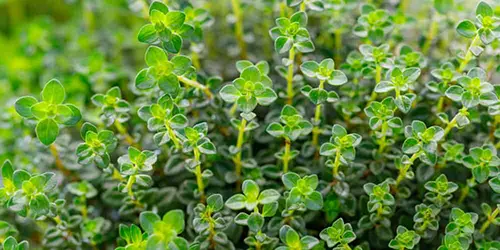
Pet Safety: It is important to mention that lemon thyme is toxic to dogs, when consumed, the sap can cause stomach problems and it can irritate the skin. Small pets should be kept away from lemon thyme.
2. Rosemary
Mosquitos don’t like rosemary. Additionally, you can use the oil to make a repellent spray that will keep them out of your home.
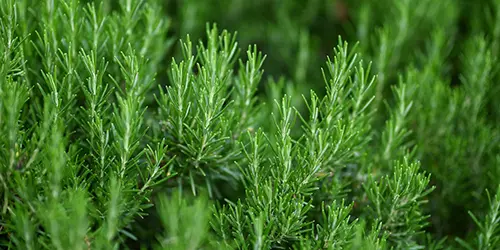
Pet Safety: Rosemary is a non-toxic plant.
3. Garlic
Garlic gives many home-cooked meals its rich flavor. It also has several health benefits. But most people are not aware that garlic plants drive away many insects including root flies.
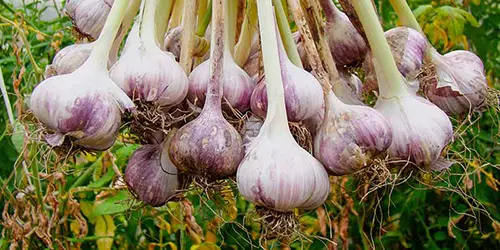
Pet Safety: Garlic is toxic to most small pets including goats, sheep, reptiles, birds, horses, cattle, cats, and dogs. Garlic can cause stomach upset, weakness, and anemia in animals.
4. Mint
Mint is easy to grow but difficult to remove, so you’ll need to keep this in mind when planting. Also, you can extract the oil from the plant and combine it with vinegar to make your own insect repellent.
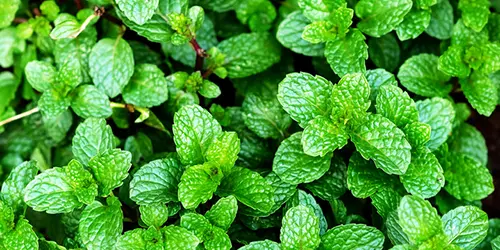
Pet Safety: Mint is toxic to cats, dogs, and horses. When ingested in large amounts, it can cause diarrhea and vomiting.
5. Pitcher Plant
These exotic-looking plants are carnivorous, and they trap any insect that crosses their path.
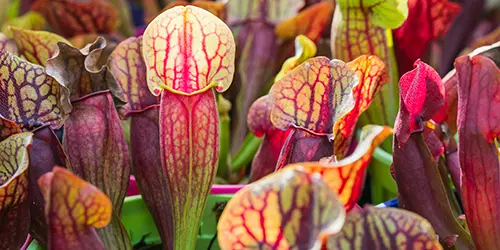
Pet Safety: Pitcher plant is not toxic to animals. However, they may cause minor stomach upsets.
6. Sage
You can grow sage on landscape beds, and patios, or plant them in gardens. Its beautiful leaves give off a scent that insects don’t enjoy.

Pet Safety: Sage is non-toxic to animals.
7. Lemongrass
This popular plant is usually confused with citronella. It makes a delicious addition to dishes such as chicken and fried rice and it also repels mosquitos.
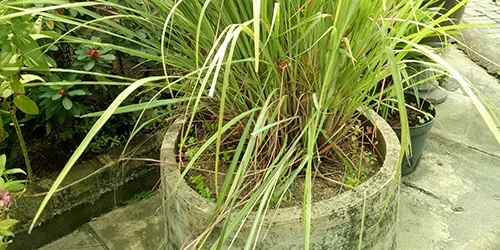
Pet Safety: Lemongrass is a non-toxic plant.
Related: Do You Have This Plant In Your Backyard?
8. Basil
Basil is a well-loved herb that tastes spectacular in salads, soups, and stews. Its oil kills mosquito eggs and you can also use it to treat mosquito bites. To keep flies and mosquitos from finding their way into your home during the summer months, grow some basil in containers by all entrances to your home.
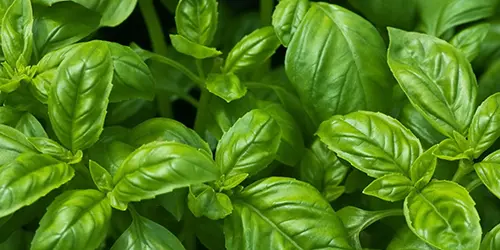
Pet Safety: Basil is a non-toxic plant.
9. Marigolds
The distinct scent released from marigolds drives away mosquitos and whiteflies. Grow them along the borders and corners of your garden beds for best results.
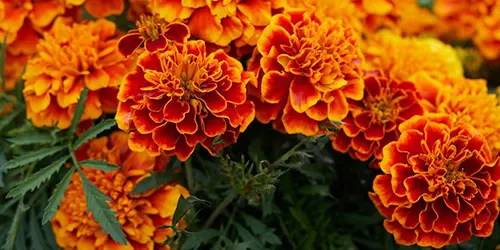
Pet Safety: Marigolds are not toxic to animals; however, if dogs and cats eat the plant in large amounts, they will experience stomach upset. Additionally, animals with sensitive skin can get rashes if they come into close contact with the plant.
10. Petunias
If you want to add a burst of color to your garden, the beautiful purple hue of the petunias will provide the decorative edge you need to make your backyard stand out. These plants are also known to be the most effective insect repellents. Additionally, they are favored by gardeners because they don’t need much maintenance.
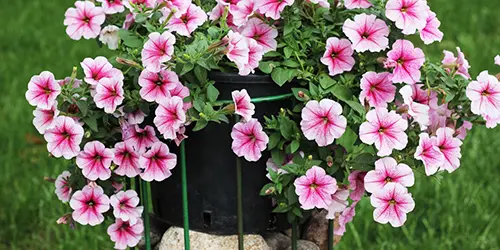
Pet Safety: Petunia is a non-toxic plant.
11. Floss Flowers
The next time you go to the store, read the ingredients on any insect repellent spray and you’ll find that it contains ‘’ This chemical compound is found in floss flowers.
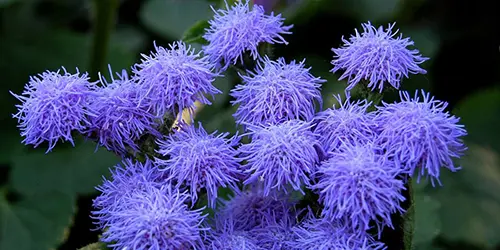
Pet Safety: Floss flowers can be harmful to animals when ingested in large amounts.
12. Lavender
To humans, lavender is a beautiful fragrance used to adorn our bodies and homes. But to flies and mosquitos, it’s an abhorrent odor. The oil is so powerful that it restricts the mosquito’s sense of smell.
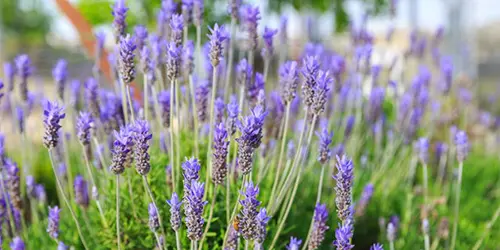
Pet Safety: Lavender contains linalool which can be toxic to dogs and cats. Lavender poisoning can cause vomiting and decreased appetite.
13. Nasturtiums
This simple, yet powerful flower will protect you and your crops from unwanted visitors. You can plant them around the vegetable garden, along flower beds, or on the patio.
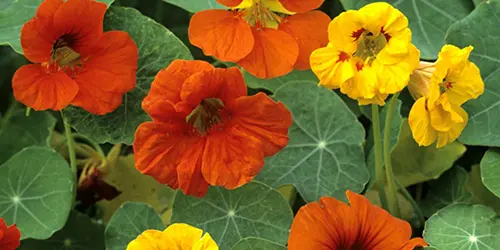
Pet Safety: Nasturtium is a non-toxic plant.
14. Catmint
Also known as ‘catnip’, you will find this plant thriving in almost any location. As a member of the mint family, they are excellent mosquito repellent. Additionally, a study conducted by Iowa State University found that catmint is ten times stronger than DEET, the chemical added to the majority of insect repellents.
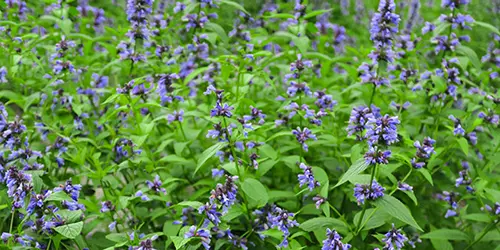
Pet Safety: Catmint is a non-toxic plant.
15. Citronella
You will also hear this plant referred to as ‘scented geranium.’ It is highly recommended as a mosquito repellent.
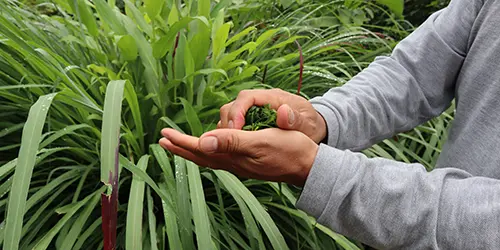
Pet Safety: Citronella is toxic to animals. When ingested, it can cause stomach upset in cats and dogs.
How to Protect Your Animals From Toxic Plants
Unfortunately, some plants can harm your animals. But the good news is that there are things you can do to protect your pets such as:
- Blood Meal: Add organic blood meal to the plant’s soil. A blood meal is a powerful fertilizer that significantly improves the soil’s structure, but it is hideous to animals. Once they smell it, they won’t go near the plant.
- Roses: Plant roses near your toxic plants because animals don’t like the prickly thorns and will stay away from them.
- Stones: If you have cats, add stones around your plants because they don’t like them. Nevertheless, stones will not keep dogs or other pets at bay.
- High Fencing: Fence off the area to toxic plants. Make sure the fencing is high enough so your pets can’t jump over.
- Hanging Baskets: Use hanging baskets for some plants, make sure they are high enough so your pets can’t get to them.
Final Thought
As you have read, the above plants are excellent for repelling mosquitos and flies. However, some of them are toxic to animals; therefore, it is advised that you take the necessary precautions to keep them out of your pet’s reach.
You may also like:
Stop Spending Money At The Pharmacy By Growing These 10 Plants (Video)
A Medicinal Garden Kit For Starting A Small Backyard Pharmacy
Why You Should Use Banana Peels In Your Garden
Vertical Garden: 26 Plants To Grow Your Own













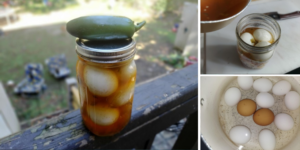
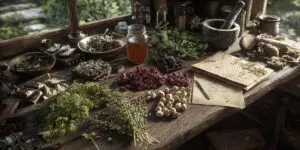

These are great tips. Do you have any tips for keeping free range chickens off your plants? We fenced in the gardens but we just gave up on plants because they either dig them up or just smash them by laying on them.